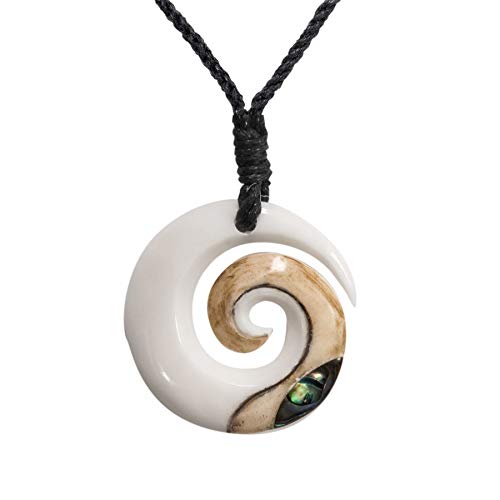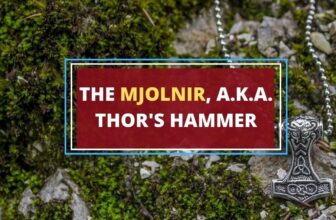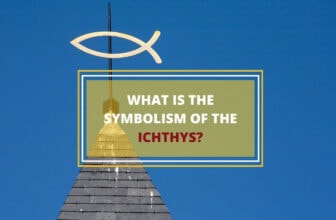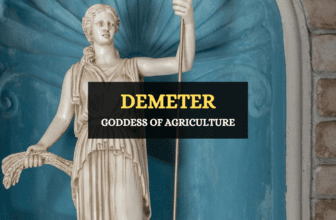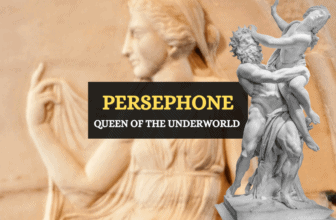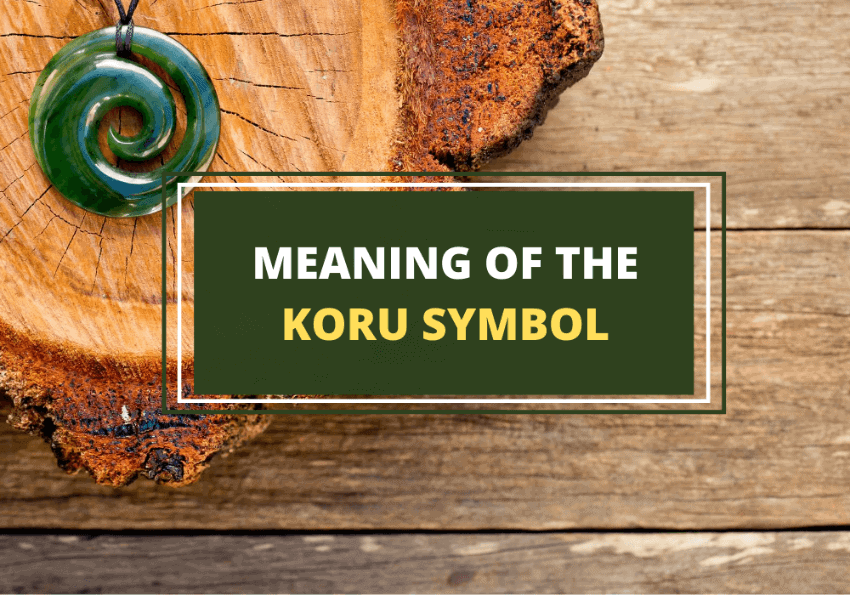
Table of Contents
Possibly the most popular of all Maori symbols, the Koru (Maori for loop or coil) is one of the most important symbols of Maori traditions, representing new life, spiritual growth, and progress. In this article, we will be exploring the origins of Koru, its significance in religions, characteristics of the symbol, its symbolic meanings, and contemporary usage.
What is the Koru?
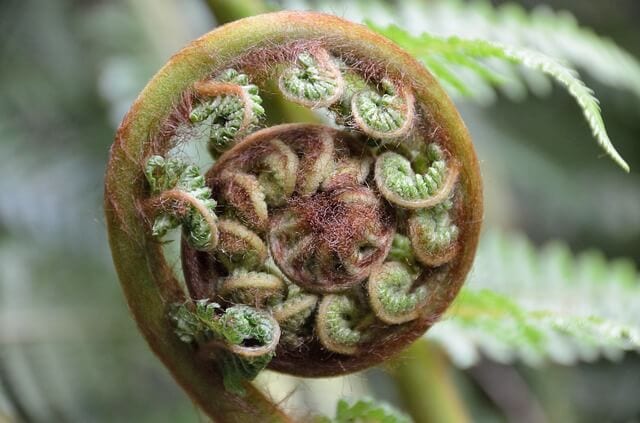
The Koru symbol is in the shape of a spiral, loop, or coil, and resembles an unfurling Silver Fern sprout.
The Maori people believed in a plethora of gods and goddesses who thrived within the natural environment. They gave immense importance to the earth’s elements, and all their spiritualistic rituals were rooted in the sun, water, and soil.
The Silver Fern was one such element that was an integral part of Maori religious practices. The Silver Fern, prevalent in the forests of New Zealand, was revered for its abilities of growth and regeneration. For the Maori people, the budding fronds of the tree represented a new season and marked the beginnings of a new calendar.
While some Koru symbols are painted independently, others are drawn alongside patterns and designs on artworks, buildings, and jewelry. The Maori typically paints the Koru in colors of red, white, and black.
Importance of the Koru in Maori Culture
To understand the Koru’s significance, it’s important to get some background knowledge of the Maori.
The Maoris are the indigenous people of New Zealand. The Maori people give immense importance to ritualistic traditions and spiritual practices, with symbols and hieroglyphs playing an integral part in their art, culture, and heritage. These symbols are unique and embedded with philosophical beliefs passed down from ancient mythological lore. The Maori are renowned for their intricate art with many patterns, colors, and designs.
This brings us to the Koru.
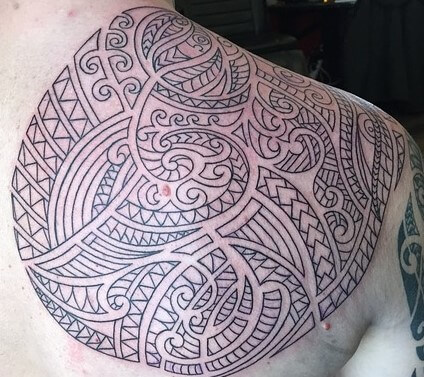
Notice the unfurling Koru at the center of this man’s tribal tattoo
The Koru features in almost all of Maori art, assuming different shapes and forms, and has existed for thousands of years.
Archaeologists have uncovered Koru in ancient dwellings of the Maori people as well as in Marae, which is one of the most important structures in Maori civilization. The Marae is a meeting house for Maori people to discuss laws, ethics, society, and religion. These buildings have traditionally been decorated with Koru designs. Even today, the rafters of the central platform of the Marae are illustrated with various Koru symbols.
The Koru symbol can also be found in Europe, but this is because it was introduced into by Captain Cook, who was one of the first Europeans to acknowledge the greatness of the Maori civilization.
Symbolic Significance of Koru
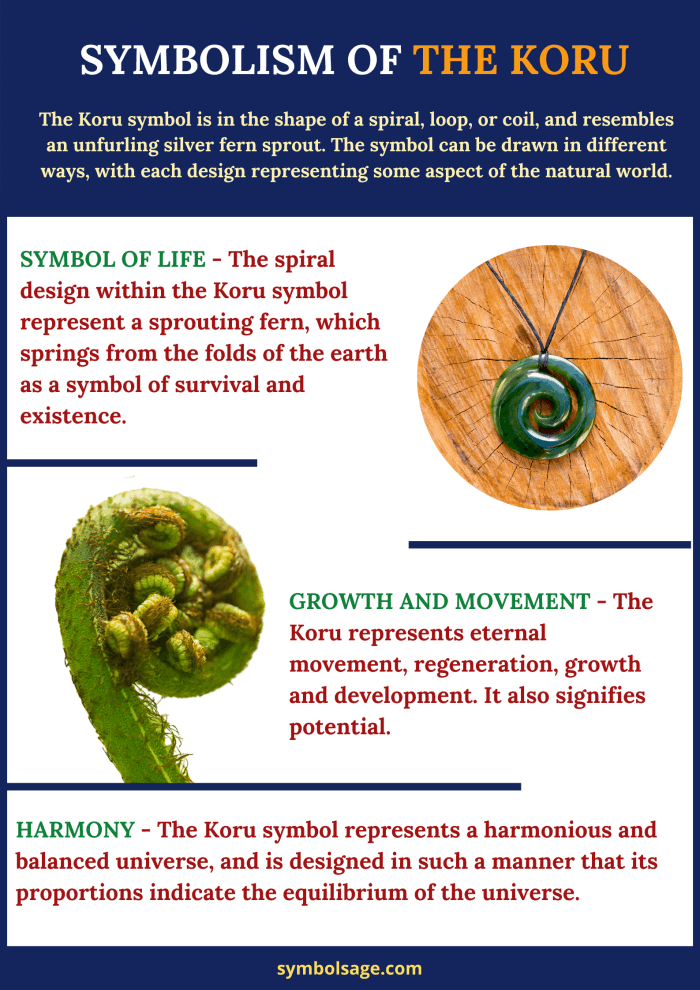
There are many symbolic meanings associated with Koru. Some of them will be illustrated below.
- Symbol of Prestige
For the Maoris, the Koru is an integral part of the Maori body art – the Moko. When used in the Moko tattoos, the Koru represents authority, prestige and spiritual power.
- Symbol of Life
The spiral design of the Koru symbol represents a sprouting fern. The fern which springs from the folds of the earth is believed to represent survival and existence. Maori civilization gave immense importance to newly budding plants and cherished them as a symbol of life and vitality.
- Symbol of Movement
The fluid, spiral shape of the Koru symbolizes eternal movement, while the inner coil is a symbol of the cyclic process of life and death. For the Maori, the dead went back to their origins in the soil, only to be reborn again. The Maori’s believed in a transfer of energy that was always in movement and could not be fully destroyed.
- Symbol of Growth
The silver fern of the Koru reflects growth and development. Growth can be in terms of spiritual changes such as newly attained wisdom or enlightenment. It can also reflect growth in terms of physical prowess and the strength of youth.
- Symbol of Harmony
According to Maori beliefs, the Koru symbol represents a harmonious and balanced universe. The symbol is designed in such a manner that its proportions indicate the equilibrium of the universe. Koru necklaces and amulets are often gifted to newly engaged couples as a symbol of harmony and companionship.
Modern Use of Koru
The Koru symbol has gained universal popularity in contemporary times. Some of the ways in which the symbol is used include:
- Jewelry and Tattoos
The Koru symbol is a popular design for jewelry and is predominantly carved into bone or Pounamu stone to make chains, amulets, and bracelets. Jewelry etched with the Koru symbol is given to newly married couples for a long and happy life. It is also gifted to those who are joining college or starting a new job.
The Koru is also a popular symbol for tattoos, especially among Maori and New Zealanders in general. However, because the symbol has become so widespread, it’s used globally often without much knowledge of its significance. Below is a list of the editor’s top picks featuring the Koru symbol.
- Logos
A stylized version of the Koru symbol was adopted as the logo of Air New Zealand. The logo was designed in 1973, by Tom Elliot, to mark the arrival of the airline’s first wide-body jet, known as the McDonnell Douglas DC-10. The Koru symbol was painted onto the tail of the jet for prominent visibility.
- Flag
In 2016, New Zealand called for a vote on new flag designs. One of the flags, designed by visual artist Friedenscreich Hundertwasser, featured the Koru symbol. The symbol was the central attraction in Hundertwasser’s design. Although the flag was not entirely successful, the Koru symbol gained wide recognition and acknowledgement with Hundertwasser’s illustration.
- Artwork
The Koru symbol became universally acclaimed with the artworks of Gordon Walters, a Wellington based artist. In his artwork, Gordon Walters represented the cultural heritage of New Zealand and the Maori people. From the 1950’s onwards, Walters dedicated entire series of paintings exclusively to the Koru symbol. Walters art pieces are an integration of modern art and ancient Maori patterns.
Gordon Walters’ artwork provided inspiration to Colin McCahon, one of New Zealand’s most famous painters. McCahon incorporated Maori patterns and the Koru symbol into several of his artworks.
In Brief
The Koru symbol has played a central role in Maori symbolism, prominently featured in their body artwork, architecture, accessories and decorations. Today, the symbol has gained widespread acclaim and universal recognition in contemporary times. The cultural practices of the Maori people are kept alive by the various modern usages of the symbol.





